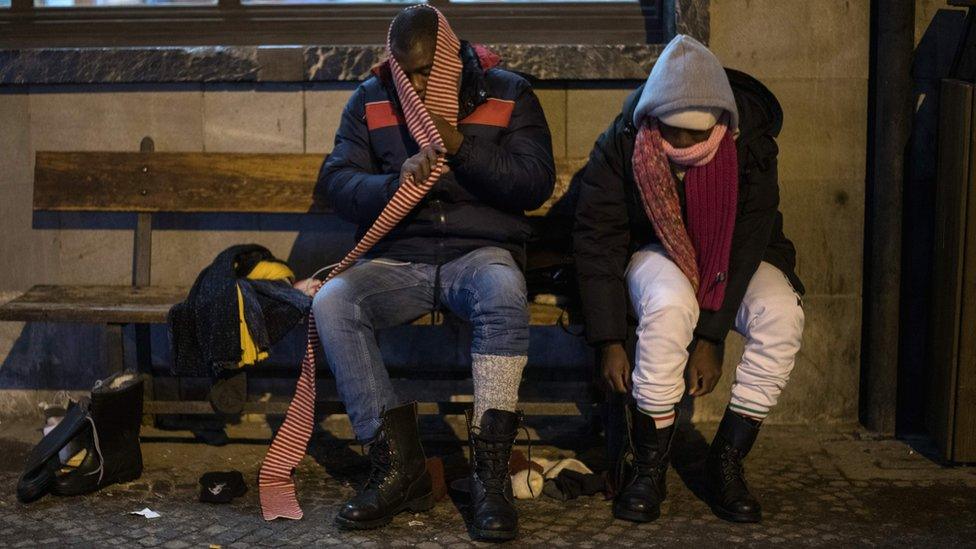France approves controversial immigration bill
- Published

The vote opened fractures in President Emmanuel Macron's governing centrist party
The French National Assembly has passed a tough new immigration law that tightens the rules around asylum.
The bill shortens asylum application deadlines, doubles the time for which illegal migrants can be detained, and introduces a one-year prison sentence for entering France illegally.
President Emmanuel Macron's governing centrist party says the bill will speed up the process of claiming asylum.
But opposition figures and human rights groups say the measures go too far.
The bill passed by 228 votes to 139, with 24 abstentions, after more than 60 hours of debate over the weekend and hundreds of amendments.
One member of Mr Macron's La République en Marche (LREM) party, Jean-Michel Clément, voted against the legislation and 14 members abstained.
"I am not sure we're sending to world citizens the universal message that has always been ours," Mr Clément, a former Socialist, said in a statement after the vote. He later announced he was leaving the parliamentary group.
The main aim of the law is to cut the length of asylum applications and make the deportation system more efficient for those rejected. Refugees given asylum will be given greater help with integration and learning French.
What's controversial about it?
One of the most significant changes is that failed asylum seekers awaiting deportation can be held for up to 90 days, double the existing period of 45 days. The government had initially aimed for a 135-day period.
Opponents complained in parliament that migrants were being treated like criminals. Children can also be kept in detention with their families, although officials agreed to set up a working group to look into the issue. In 2017, 275 minors were being held in administrative detention centres. Far-left leader Jean-Luc Mélenchon condemned the practice as "barbaric".
The deadlines for filing asylum applications or appealing against a rejection have also raised concerns. Claimants will have 90 days to file an application, down from 120 days, and two weeks to appeal against rejection.
Human Rights Watch says shortening asylum application deadlines could negatively impact the "most vulnerable asylum seekers, who would be the ones most likely to miss the deadline".
"Under the guise of providing a more effective asylum system, the bill includes a series of measures that would diminish access to protection," the group's France director Bénédicte Jeannerod said in a statement.
Left-wing parties were deeply opposed to the changes and the right-wing Republicans joined them. The far-right National Front backed some of the measures.
The bill will now be debated in the upper house, the Senate, in June.
A note on terminology: The BBC uses the term migrant to refer to all people on the move who have yet to complete the legal process of claiming asylum. This group includes people fleeing war-torn countries such as Syria, who are likely to be granted refugee status, as well as people who are seeking jobs and better lives, who governments are likely to rule are economic migrants.
- Published17 April 2018

- Published31 March 2018

- Published16 January 2018

- Published2 February 2018

- Published19 January 2018

- Published28 June 2017

- Published29 November 2016
